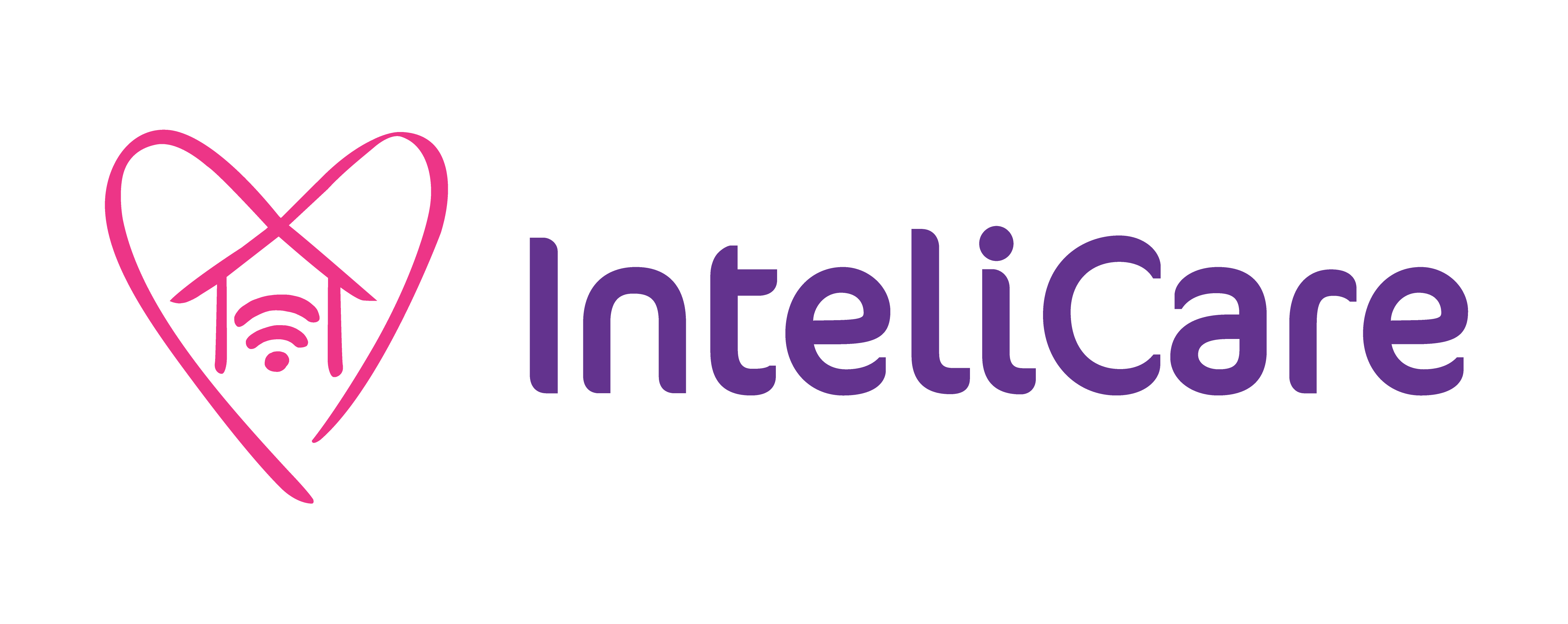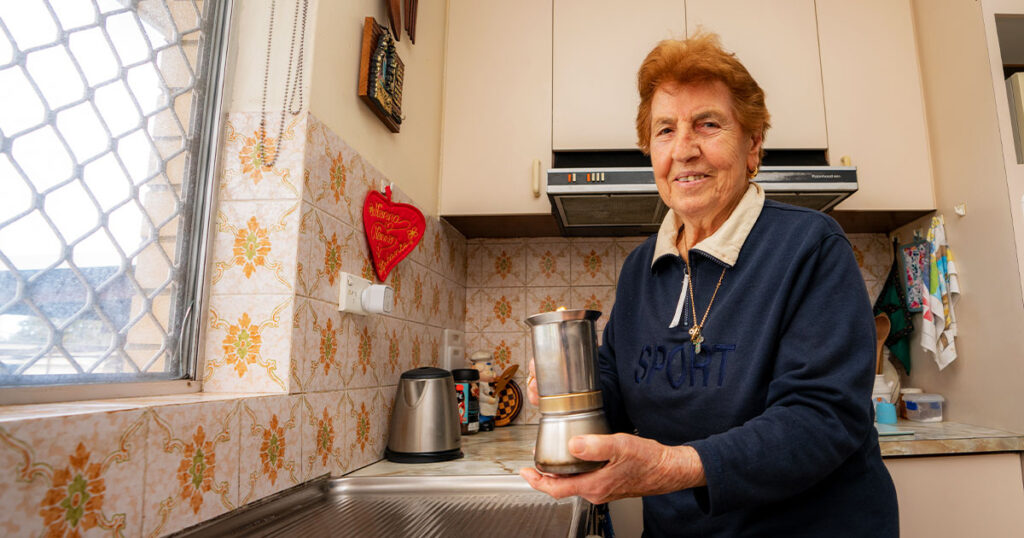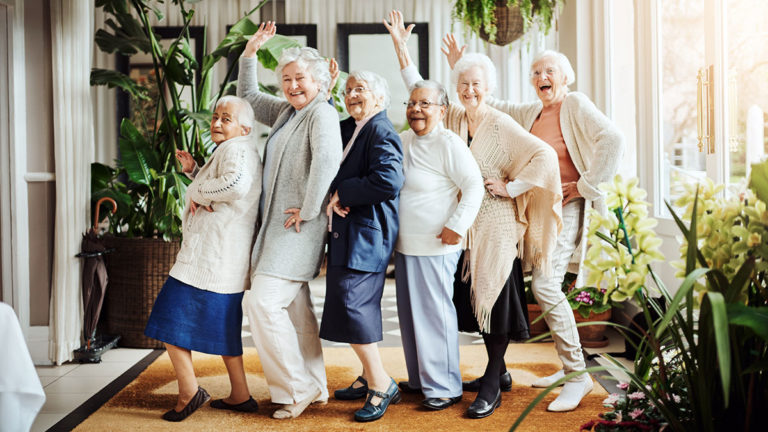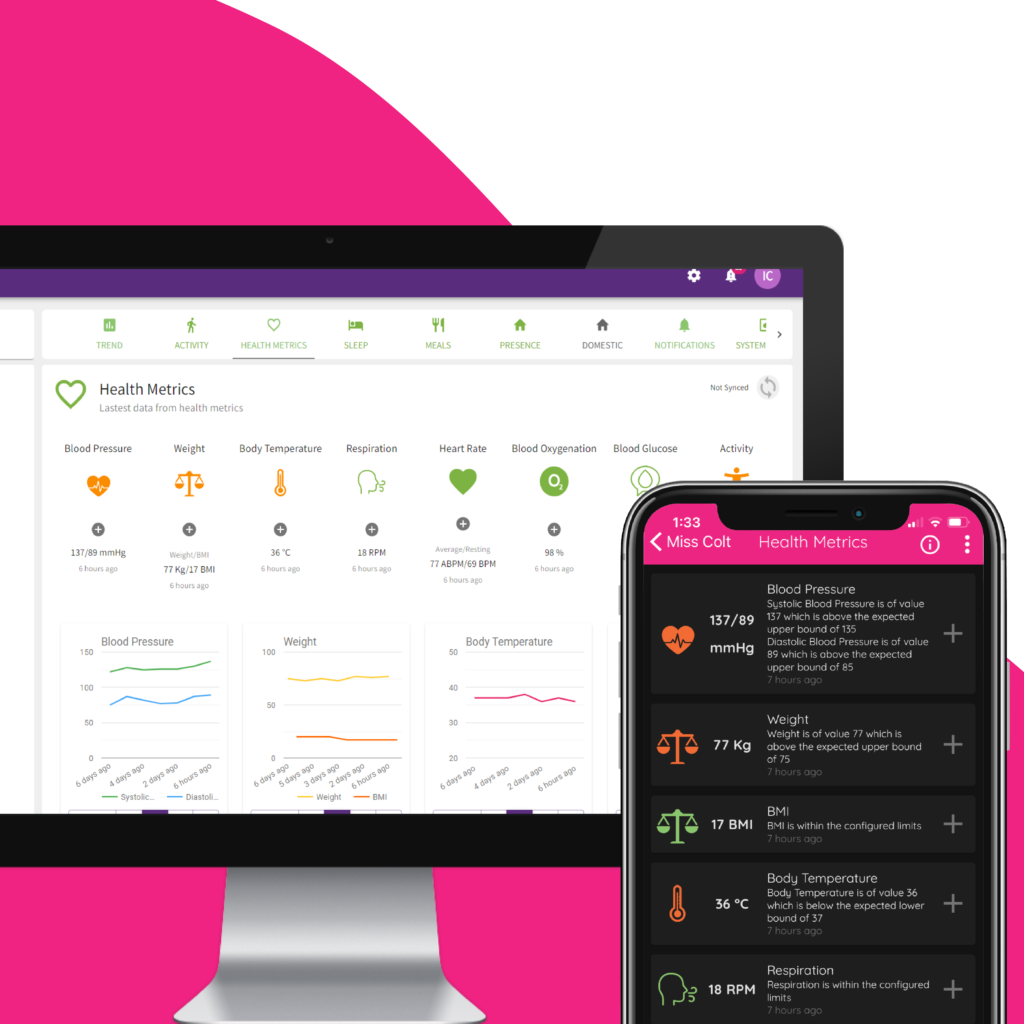Although synonymous with footy matches and road trips, the iconic Chiko Roll has never been linked to assistive technology. Until now…
Originally created by a boilermaker in Bendigo, Australians have been ‘grabbing a Chiko’ since the 1950s. Legend has it the Chiko was inspired by spring rolls and designed as a robust roll to be held in one hand, with a cool beer in the other.
InteliCare, is an Australian assistive technology company. Using trend data, in home sensors and AI technology, InteliCare empowers elderly and disabled people to live independently in their own homes.
InteliCare in action
John* is 85-year-old and based in New South Wales. He lives alone and is keen to maintain his independence. His carers wanted to help him do this for as long as possible, so installed InteliCare.
Using InteliCare’s camera-free sensors, John’s carers gained artificial intelligence (AI) driven insights into his activity levels, patterns of behaviour, health metrics, sleep and more. This highly curated data helps carers identify behaviour that can indicate an emerging health risk.
Then, without any other indications or carer reports, John’s care team received an automatic notification from InteliCare’s artificial intelligence that his daily meal preparation had changed for the worse. It looked like John had started skipping meals.
Why is this important?
Skipping meals or changing eating habits can cause malnutrition, dehydration, and dizziness, which can lead to a fall.
When an elderly person falls the consequences can be severe, from serious injury, hospital stays, or even a loss of independence with a move to residential care.
Prevention is better than a cure. InteliCare’s smart technology works as an early warning system by spotting changes in activity that indicate an emerging issue that are a falls risk – including malnutrition.
Armed with InteliCare’s data, John’s carers decided to take proactive action and investigate. But, were both surprised and amused by what they found.
Technology holds the answer
Instead of skipping meals, John had discovered Uber Eats and was enjoying a daily Chiko Roll. Good for you John!
His carers were relieved that John was not skipping meals but were still concerned that the robust roll wasn’t giving him all the nutrients he needed. Meaning John was still at a risk of falls due to malnutrition.
Importantly, John’s care team understood he has a right to choose his risk level, and his care needs. This can include a delicious daily roll! So his carers customised his plan and put in action to adjust his other meals to fulfil his nutritional needs.
Now John enjoys ‘grabbing a chiko’ while his carers can breathe easy knowing he is no longer a malnutrition-based falls risk.




